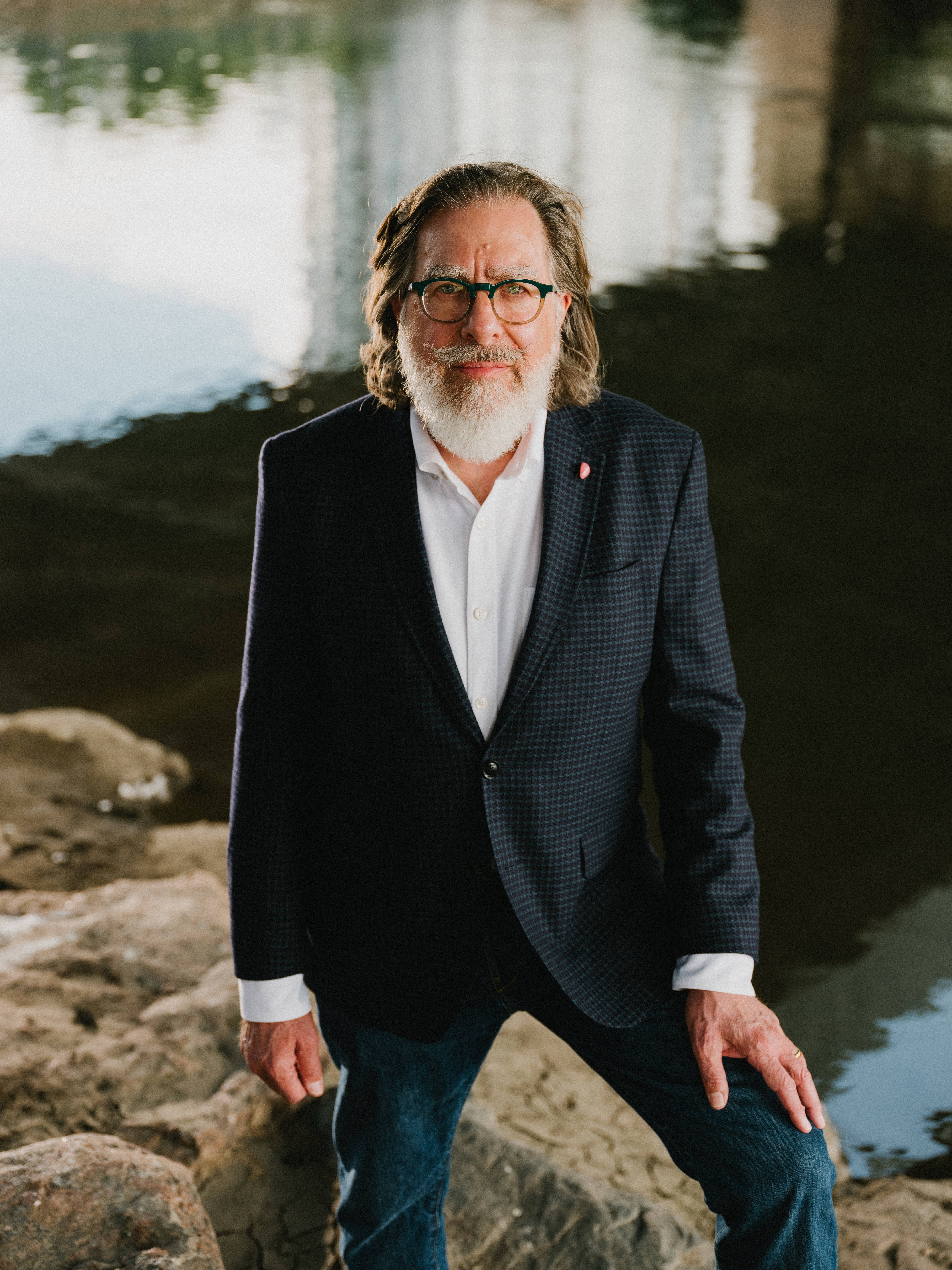
Most water tech companies will need investment at some stage in their journey from idea to realisation, to market and customer. There are various types of investment available for businesses at different stages of their journey, from the traditional seed and series funding to more modern investment routes such as crowdfunding.
In this essential guide, we look at each type of funding and then find out what investors operating in the water tech world are looking for from founders and their companies.
To understand more about what investors are looking for and to help companies working towards future funding rounds, we reached out to a number of experts to find out what they looked for in founders, and why they choose to invest in water tech.

Why are investors increasingly interested in water tech companies and the water industry?
“The use and management of water is central to many industries outside of water/wastewater utilities. For example, leak detection in properties (prop-tech), sea-level rise (insur-tech), water scarcity (fin-tech, as it relates to financing real estate developments), sea-level rise (insur-tech), urban flooding (climate-tech), snowpack forecasting (renewable-energy), and water quality at our kitchen taps (health-tech). “There are many investors who see 'water' not through the lens of the so-called 'water industry', but through some 'other' industry where water quantity or quality is central.”
What does Robinson look for in a founder?
“We like founders who have a ‘PhD in the customer’, which in practical terms means that if we have an hour to chat with a founder, they are apt to spend 45 minutes talking about the customer's challenges, how incumbent solutions are failing, and market headwinds/tailwinds.
“Then, and only then, we spend 15 minutes talking about where/how their innovation addresses the challenge in a more efficient way.”
For Robinson, there is one mistake that too many founders make.
“The classic mistake many founders make is jumping on a video call with investors and jumping right in to ‘pitch mode’ by opening a slide deck. My pragmatic advice to founders is to ask the investor how they would like to spend the allocated 30 minutes before jumping into the hard pitch.”
As for that all important slide deck, Robinson wants founders to follow a certain journey.
“In the investor deck, we like a couple of slides right up front simply called, ‘Who is our customer?’ Talk about their pain, talk about the failings of incumbent solutions, talk about their needs/objectives. Only after those slides can you effectively introduce your own solution.
The classic mistake many founders make is jumping on a video call with investors and jumping right in to ‘pitch mode’ by opening a slide deck
“We like investor decks that have a slide called, ‘Upcoming conferences’, which shares which big shows the founder is going to be at, making friends in the industry, shaking hands with future customers, and ideally some kind of speaking role. This also helps us know where we might meet up face-to-face.”
For Robinson to invest financial capital, he first wants to hear about other forms of capital a founder is able to raise.
“The word ‘capital’ translates into ‘money’ for most people, but there are different kinds of capital. In my opinion, once a founder is able to raise the necessary ‘human’ capital (key team members), ‘intellectual’ capital (the idea/strategy) and ‘social’ capital (endorsements from industry leaders), then the financial capital is much more straightforward.
Robinson says that, at the earliest stages, the business of a venture capital firm is less about finance and more about having an understanding of markets, technologies and people: “Having a feel for what makes a good trade requires experience in the trenches, not MBA lecture halls.”
While later-stage private equity investment is almost entirely the domain of the financial services industry.
In terms of raising ‘human’ capital, Robinson offers early-stage founders the following advice: “Nail your board and board of advisors. If you were able to get a certain former senior leader at famous corporate to formally be on your advisory board, that serves as a good endorsement. Allocate shares to them, give them options, tap into their experience and networks to tweak your offering, refine your go-to-market strategy, and land your first few big customers.”

As an accelerator co-founder, Gaetane Suzenet has a slightly different relationship with founders than traditional venture capital firms.
“The European Water Tech Accelerator is involved in investment-related initiatives and has close links with some water and non-water investors. For example, it was involved in an investment series initiative led by the World Economic Forum.”
Gaetane is clear that water is an industry worth investing in: “2024 is likely to see more attention to water from impact, climate tech and circular economy investors, outside the water sector. This is good news because it proves that water is back to the top of the investment agenda. We have seen rounds up to €15 million. Start-up scaling requires large funding and as such, we are hoping to see more of this kind of deals.”
What does European Water Tech Accelerator look for in founders and their business?
“We consider the team, and the vision and ambition the founders and management team set for their business.”
Do your homework, research the investors’ investment strategy, and ensure your deck is adapted to it
And what should founders do, to help them secure investment?
“Do your homework, research the investors’ investment strategy, and ensure your deck is adapted to it.”
Looking forward, Suzenet wants to see founders providing more evidence of scalability in their business models: “We will still be looking for disruptive technologies. Nonetheless, it can no longer be sufficient, and technologies and products will have to be supported by a scalable business model.
“We will also be looking for investment rounds of a significant size that will support the company’s growth and scale-up. We are very pleased to have interest from other investment sectors, and looking forward, it will open up new opportunities for water start-ups.”
.jpg)
The reason investors are interested in water companies is “easy”, according to Avent Bezuidenhoudt: “It’s a commodity that we cannot live without and yet the effects of climate change are forcing us into a crisis situation with demand outstripping supply.
“This situation will only worsen as the climate crisis deepens and population growth continues to spiral. Nine out of 10 climate events are water related.”
Earth Capital invests in sustainable technology businesses across the energy, food and water sectors. It looks for businesses that can demonstrate the potential for high growth while offering solutions that either mitigate the effects of climate change or accelerate the transition to net zero.
As well as the sector, the environmental suitability and potential for growth, like all investors, Bezuidenhoudt looks for certain traits in founders and their solutions.
“We look for strong, protectable IP and an attractive addressable market, with a solution that solves an identified customer pain.
“A strong management team will always be key to an investor and as companies scale, the make-up of the team will often pass through different phases of growth. A management team can either accelerate or limit the growth potential of a business so getting the right people can be the difference between success and failure.
“We invest at the early growth phase, which is often time for founders to take on new key management team members with specialist skills to facilitate growth, or even step back from the leadership role, if that is right for the business. A founder who understands this will be very important for investors as founders and investors as major shareholders need to work together in the best interests of the company.”
A strong management team will always be key to an investor
As an early stage investor, Earth Capital invests in the region of €5-10 million, in return the company offers value through its “deep understanding of the issues”, and through its networks can make introductions to other funders, offer access to clients and users, to help overcome any sectoral challenges the company might face.
In return for investment, Bezuidenhoudt says Earth Capital usually takes a minority stake: “But with consent rights over issues such as issuing new shares and changing the board composition. We always take an non-executive director position so that we can develop a deep understanding of the issues the company is dealing with and stay close to management, while providing support and advice as and when needed.
“As Venture Capitalists we have worked with many growth companies as they scale so know what challenges to expect and how to deal with them – our teams don’t have to make the same mistakes because we can help them avoid or them or minimise the impact.”
In terms of measuring the success of an investment, Bezuidenhoudt says the company looks at key metrics, including an initial return on investment and cash multiples, all with a view of exiting in three to five years. Success is not just measured financially, however,
“As impact investors we closely monitor and assess the positive impact that each company in our portfolio makes using our Earth Dividend™ assessment tool and focus on continuous improvements to ensure long term resilience and delivery of those positive impacts.”
What advice would Bezuidenhoudt give to founders to make sure they are funding ready? “Be prepared, be clear, be realistic and be honest! Do not approach investors until your funding materials are ready and your business plan make sense. Be open and clear about the challenges you face, the market opportunity and the strength of your competitors.
“Be realistic about the valuation of your company now and in the future. And never, ever attempt to disguise or hide the facts from your investors as the truth will eventually come out at some point, and lack of honesty will only erode trust and damage the relationship.”
Once an initial meeting has taken place, it may take some months before the first investment is completed: “We take time to get to know the management team and develop a deep understanding of the technology and the marketplace, as well as the growth potential of the company and its business model.
“We expect a period of around 3-6 months from initial meeting until completion of the first investment.”
Digital and novel solutions to address issues such as wastewater treatment, flood mitigation, water quality and decarbonisation are all areas that Bezuidenhoudt expects to attract investment in the near future.
“New investors are starting to enter the market as the realisation hits home that water is a critical area that requires modernisation. Many are still nervous about the complexities of the sector, so they are looking to partner with water investors that have a deeper understanding.
“We are seeing a growth in young technology companies as more entrepreneurs focus on the sector and put their energy into solving water problems. The large players in the sector know they need novel solutions and are increasingly looking to work with the innovators – although the problem of ‘death by pilot’ still hangs over the sector and achieving real scale remains a challenge for many.”
With the growth in young tech entrepreneurs entering the sector, in turn attracting new investors, does Bezuidenhoudt think we may see a true unicorn water company?
“Absolutely, with the importance of the issue and the increased focus on tackling the problems, the potential has to be there – but it may well be a company whose technology crosses the energy/food/water sector boundaries and tackles a number of issues simultaneously.”

Will Sarni, founder and CEO, Water Foundry believes water tech companies are well placed to attract investment.
“Water is finite, in increasing demand, poorly governed, with aging and last century infrastructure. It is essential for economic development, business growth, social well-being and ecosystem health. These factors create exceptional opportunities for innovation and investment.”
Water Foundry offers founders a trusted global brand and business ecosystem, decades of global experience working with the private sector, and diversity of experience within the team. Sarni adds: “We offer domain expertise, we are founder friendly (the team are experienced entrepreneurs), decades of experience in strategy, a global network.”
In return, Sarni expects founders to demonstrate: “An understanding of market needs and wants, as well as the problem you are solving. They need validation from customers. They should be able to demonstrate clarity of business strategy, brand and culture.”
They should be able to demonstrate clarity of business strategy, brand and culture
Sarni also looks for founders who have “an ability to learn from errors and others, humility and vision.”
So far, Water Foundry’s average investment runs to just over €462,000, most notably in Hydraloop and Crop X. It looks for founders working in specific areas, e.g. demand side reduction technologies (water efficiency and reuse in agriculture, manufacturing and the built environment), water quality (air moisture capture, low carbon water treatment and desalination), and improved access (alternative hydration delivery technologies). “Specifically, with a focus on exponential technologies – digital, and advances in material science,” Sarni adds.
Success is measured both by gaining a return on the initial investment and by realising a quantifiable impact in addressing water challenges. Water Foundry continues to, “look to raise capital and a steady pipeline in investable companies (seed and series A).”
Sarni has noticed changes in the market over recent years, he says there is, “increased market interest in the sector, a clear separation from clean tech and climate tech and notable exits e.g. Innovyze to Autodesk.”
Such is the current interest in water tech, that Sarni can see a water unicorn company on the horizon. “My bet is on Transcend.”